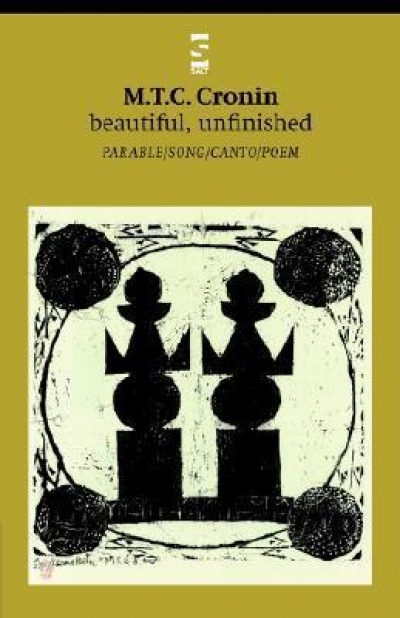Poem
Grennan sucks in air along his gums and yells
again to Davey who is filling the trough
of the gunwhale with scrabbling crabs. Far off
lightning slips down the sky like a forkful ...
Here is the ideal place for the attempt,
Here where the Christmas sales dispose
Their day-late offerings
(From which, it seems, scarcely a soul’s exempt):
Whitegoods and videos,
The manchester, the saucepans and CDs,
The swimwear, lingerie that sings
The body and its moistening promises. ... (read more)
He sang of old coins buried beneath the dunes,
to the north of the island, near the old artillery battery.
For forty years he rowed for mullet north, and south,
where the war epic motion picture was shot recently.
To the north of the island, near the old artillery battery
we played hide and seek as kids in acres of bladey-grass.
Where the war epic motion picture was shot recently
no one was allowed within a thousand metres.
Then, there were spires in every landscape
Tall, tapering fingers pressed together,
The supplications of early sainthood –
Those that the early painters made
To teach the unlettered, while the spires
Called them to listen and to pray.
A Tasmanian Paradise Lost by Graeme Hetherington & Other Gravities by Kevin Gillam
A day spent scratching civilisation’s sores –
Amnesty calls for Urgent Action;
a ministerial mouth, mean as a steel trap
closes another deluded seeker of asylum
behind barbed wire; civil liberties
are spooked by terror; girl children
trafficked to sexual servitude –
and I’m spent too. Not even that trusty spur,
the great-grandmother of my children
dead in another camp, another winter, another story,
can prick this chilled indifference to bleed –
although my mind’s rubbed raw, my heart
is dry as yesterday’s crusts.
... (read more)By the filling station on La Cienega a burger joint
somehow survives. This Sunday morning
a pink Thunderbird sags at the kerb,
and an old Studebaker, paint flaking.
... (read more)Bowed from the supermarket, a week’s rations
jumbling the plastic, I saw in shadow
my dead father. He crept the pavement, burdened
as I am not by a lost country.
... (read more)He meets a man with an icicle voice
who says it is ‘Mind’s disease’
to act impulsively; this man elevates
‘Reason’ to a pedestal, where he worships
at a cold, stony chiselled face, from afar
(& sometimes Peter sees him go up close, to peer,
at something old, cold, & slushy, underneath it –
which, he tells Peter, is a high I.Q.-ed
pickled brain, in a jar).
... (read more)

